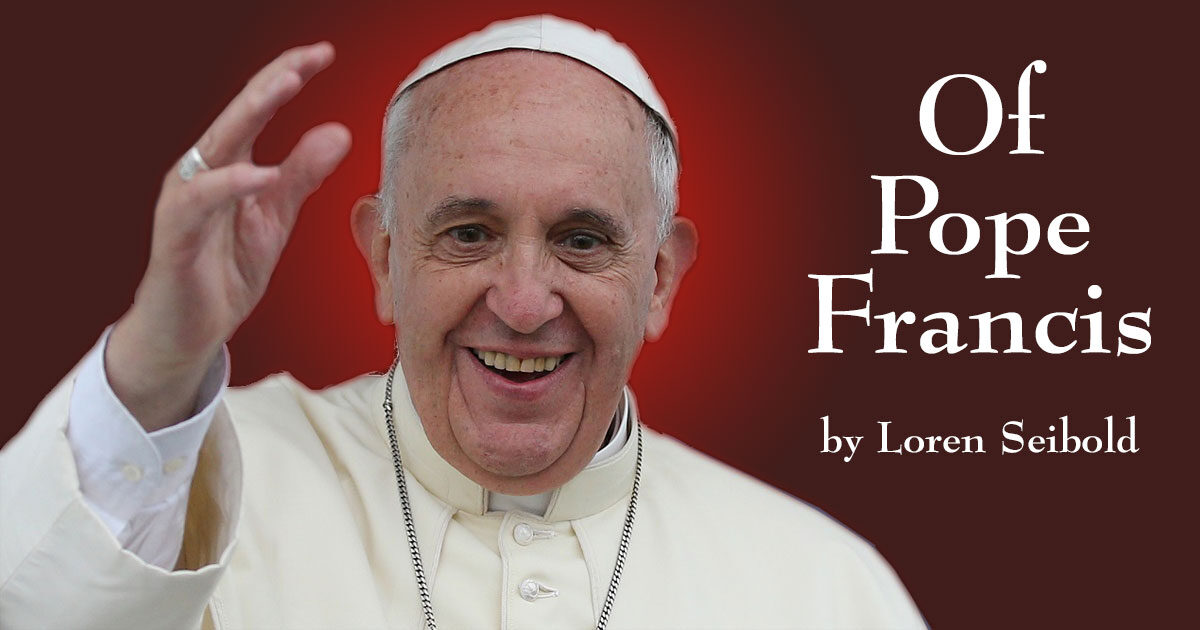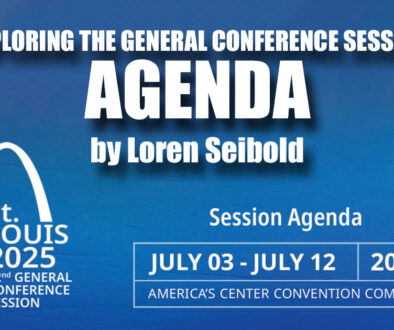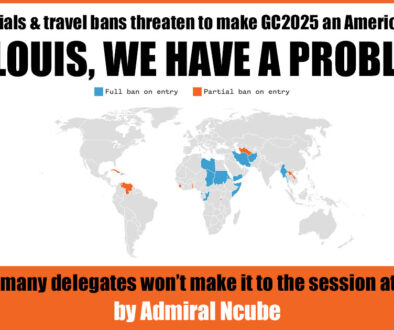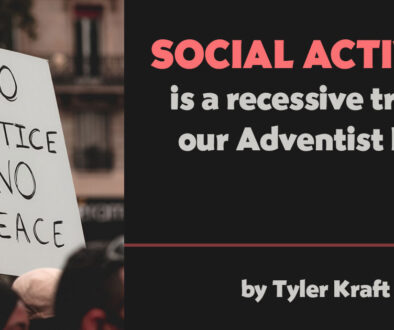Of Pope Francis
by Loren Seibold | 21 April 2025 |
It seems necessary, as a Christian who was raised in a tradition where the pope often seemed as central to my church’s story as Jesus was, to make some kind of response to the death of Pope Francis.
My Adventist upbringing would tell me that Pope Francis had to be, by virtue of his title, position, and beliefs, a bad man. I remember sermons where the pope was declared to be personally “the man of sin” of 2 Thessalonians 2:3-4, who sits on a throne in a temple asking people to worship him. Others said he’s the antichrist of 1 John. Uriah Smith identified the first beast of Revelation 13 as the pope—an identity that seems to have stuck.
Testimonies to Ministers and Gospels Workers describes a conclave somewhere out in the aether where Satan meets with his evil angels to plan his strategy:
“But our principal concern is to silence this sect of Sabbath-keepers. We must excite popular indignation against them. … We led the Romish Church to inflict imprisonment, torture, and death upon those who refused to yield to her decrees, and now that we are bringing the Protestant churches and the world into harmony with this right arm of our strength, we will finally have a law to exterminate all who will not submit to our authority. When death shall be made the penalty of violating our Sabbath, then many who are now ranked with commandment-keepers will come over to our side.”
That’s a remarkably strong accusation: it says that the pope is a coconspirator with Satan, and he will arrange to put Sabbath keepers to death.
I find this line of thinking objectionable in every way. Furthermore, it is deeply unhealthy to define ourselves by accusing others of being our enemies—people who, it should be added, have never actually done anything to hurt Seventh-day Adventists.
A good and decent churchman
Pope Francis was, it seems to me, a decent man. Not perfect, but good. Yes, he dressed funny and did rituals that we don’t understand. But mostly, when he spoke, he sounded compassionate. I’m not sure what else I can go by in evaluating his impact.
Here are some things Pope Francis said that I thought deserved serious, positive consideration.
On the environment: “The pace of consumption, waste and environmental change has so stretched the planet’s capacity that our contemporary lifestyle, unsustainable as it is, can only precipitate catastrophes.” Encyclical, June 18, 2015
On war: “Hostility, extremism and violence are not born of a religious heart: they are betrayals of religion.” During a visit to Iraq in March 2021.
On immigration: “It’s hypocrisy to call yourself a Christian and chase away a refugee or someone seeking help, someone who is hungry or thirsty, toss out someone who is in need of my help.” To a meeting of German Catholics at the Vatican in October 2016.
On capitalism: “Unrestrained (economic) liberalism only makes the strong stronger and the weak weaker and excludes the most excluded.” To La Repubblica newspaper in October 2013.
On LGBTQ people: “If a person is gay and seeks God and has good will, who am I to judge him?” Speaking to journalists on plane returning from Brazil in 2013.
On clergy sexual abuse: “Before God and his people I express my sorrow for the sins and grave crimes of clerical sexual abuse committed against you. And I humbly ask forgiveness.” Homily at the Vatican addressing victims of abuse, July 7, 2014.
On science and origins: “The ‘Big Bang’ that today is considered to be the origin of the world does not contradict the creative intervention of God; on the contrary, it requires it. Evolution in nature is not in contrast with the notion of (divine) creation because evolution requires the creation of the beings that evolve.” To the Pontifical Academy of Sciences in October 2014.
He appears to have been, despite the celebrity forced upon him, a humble man who would have preferred a more humble church. In an interview with an Italian newspaper in 2014, he said
“To depict the pope as a sort of superman, a sort of star, seems offensive to me. The pope is a man who laughs, cries, sleeps tranquilly and has friends like everyone else, a normal person.”
And again:
“Oh, how I would like a poor Church, and for the poor” (March 2013).
His failures
There were things Francis wouldn’t or couldn’t do. He spoke rather too softly in favor of women, and though he advocated for more women in church leadership he refused to make them priests, or to let priests marry.
In spite of his stated goal to curb the excesses of the Curia—the massive Roman Catholic bureaucracy—he was not able to. There were rumors of corruption among the Vatican bankers, including money-laundering. In December 2017 he said, “Reforming Rome is like cleaning the Sphinx of Egypt with a toothbrush.”
Though he personally lived a simple life, many top Roman Catholic clerics were known to be quite self-indulgent. In South Korea in 2014 he said, “The hypocrisy of those consecrated men and women who profess vows of poverty, yet live like the rich, wounds the souls of the faithful and harms the church.”
As for clergy sexual abuse, many felt that he simply failed to understand the scale of the crisis, and didn’t go far enough in holding accountable the abusers, or the bishops who hid their crimes. And though he spoke against war in general terms, he did not unequivocally condemn actions such as Russian aggression in Ukraine or China’s persecution of Catholics.
Us & them
I fully expect to hear the usual Adventist voices raised in condemnation of this man at the time of his death. But that is ungracious and unseemly. We haven’t taken enough planks out of our own eyes that we can condemn him—or his church, for that matter—on such thin evidence as we have gleaned from a few cryptic prophecies.
Others of my progressive friends praised Pope Francis as though he had been a saint. He wasn’t that, either.
A few have been tempted to make comparisons between the pope and our General Conference president—a temptation I understand. I would only go so far as to say that one exercised less personal authority than he could have done as a Roman Catholic, and encouraged more conversation among believers than was required of him by his church’s history and doctrine, while the other appears to fear open conversation, and exercises more fiat authority than is consistent with the principles of Protestantism. (I expect some of the people who work with him will quietly agree with me.)
Some have criticized the Pope because he appears to speak as a moral and spiritual voice to all Christians, and I suppose one could be frightened of that—though I am not. I think it is far better to take a broad view of Christianity, than to be a church whose only view forward is through the windscreen of Adventist triumphalism.
The church problem
I keep coming back to something the Christian philosopher John Hick said: “It is because the church ought to be startlingly better that in being mediocre it is bad.” The church has failed in so many of its forms. It has failed in its several monarchical (Catholic) forms, and I think Pope Francis realized that. It is frequently fatally flawed in its Protestant, democratic, and Bible-centered forms—schisming again and again, and refusing to stick to the core Christian values we share with others. And the church has failed in its congregational forms when it spawns big entertainment businesses under the leadership of rich, sometimes corrupt, ministers.
Perhaps this is why millions mark “none” when asked their religious affiliation.
Of all of the Christian leaders that I’ve observed in my life, only a few seem to want to exalt Jesus above the church. Billy Graham might have been one. I believe Jan Paulsen aspired to that, too. And Pope Francis might have been another. But it’s hard to tell, because all sat at the helm of a complex and wealthy ecclesiastical machine. Churchmen have always had difficulty distinguishing church from the purpose of the church. They believe their job is to save and protect the church, whether or not it is doing what it was meant to do.
I sometimes wonder if churches have been the problem all along.
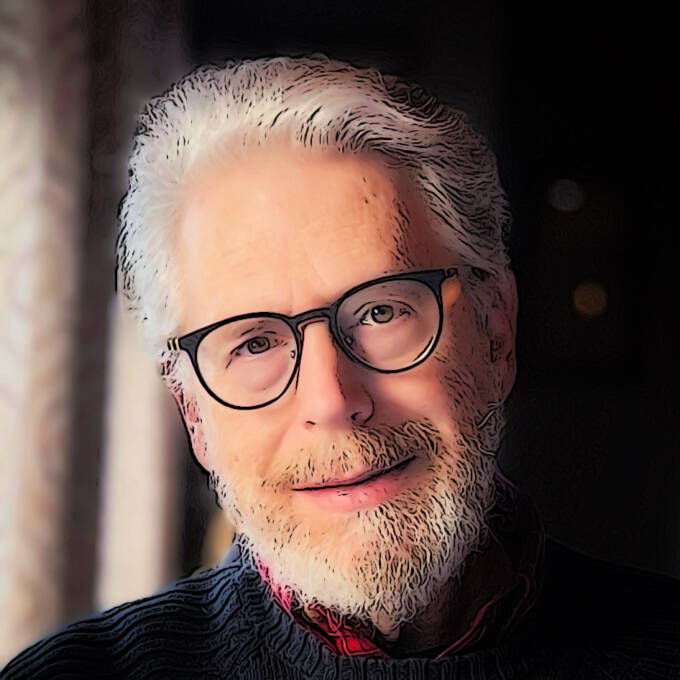 Loren Seibold is the Executive Editor of Adventist Today.
Loren Seibold is the Executive Editor of Adventist Today.

